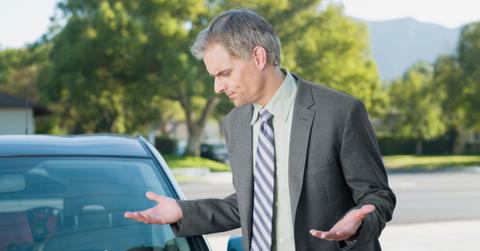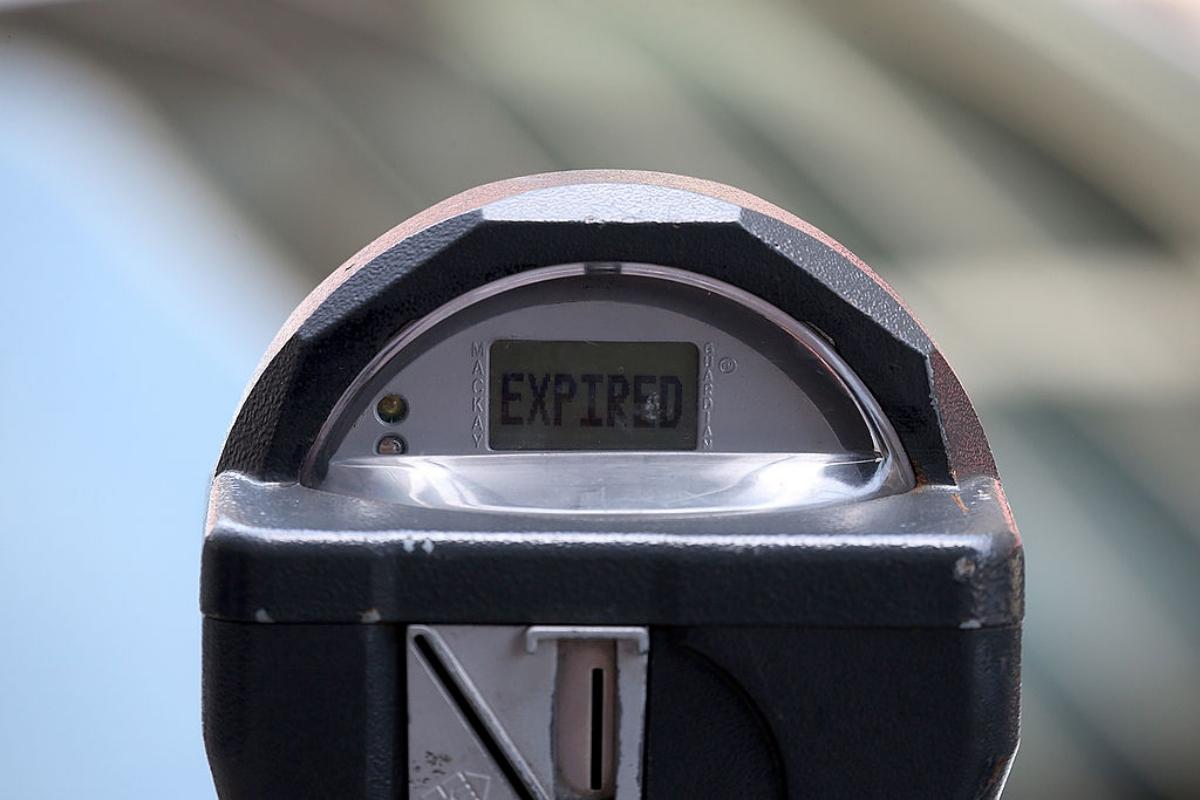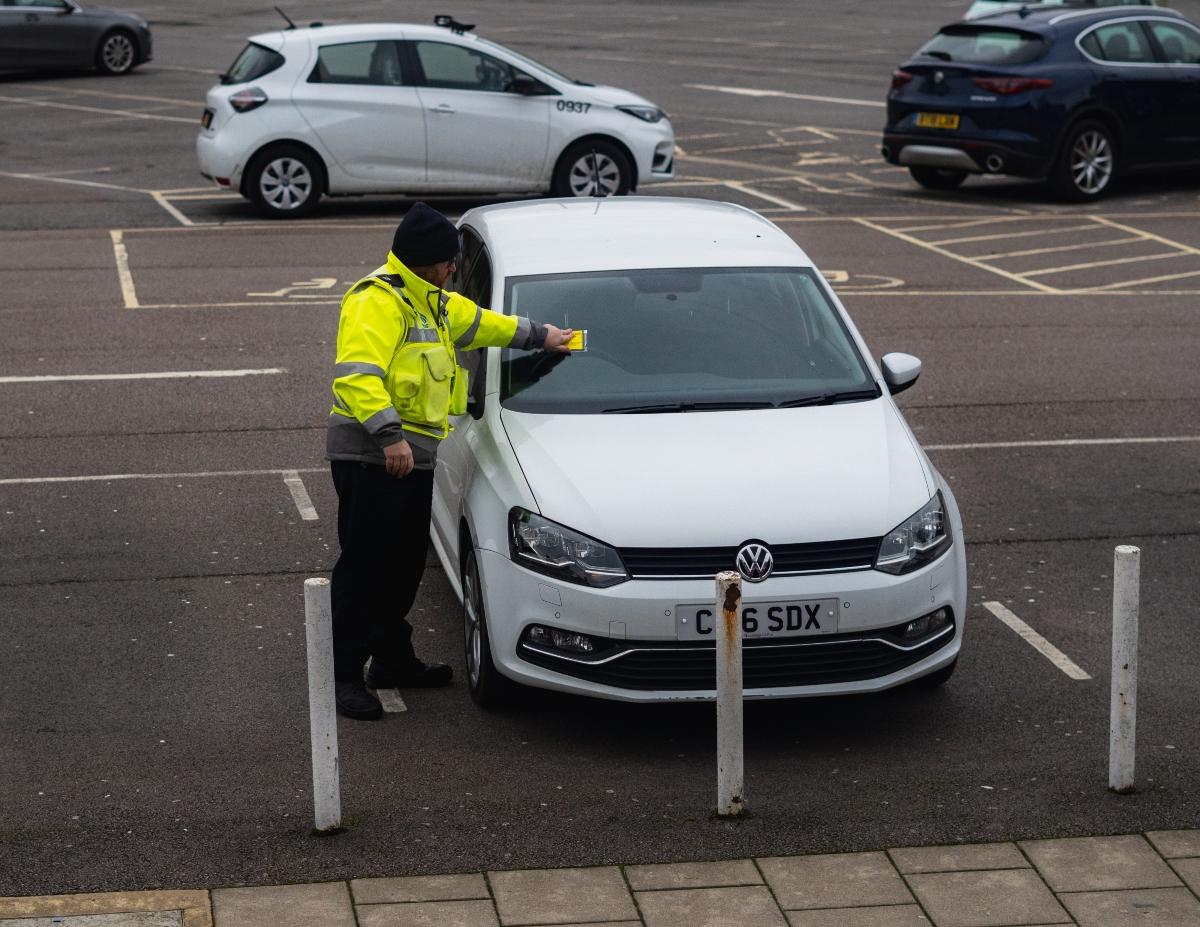Can't Pay a Parking or Speeding Ticket? Consider These Options
What happens if you can't pay a ticket for a parking or moving violation? Here's what you can expect and how to handle it if you can't pay tickets.
March 30 2023, Published 11:10 a.m. ET

- These are the typical consequences of not paying a ticket.
- There are options available for those who can't pay a ticket.
- 1. Ask the judge to reduce your fee.
- 2. Ask for an alternative like community service.
- 3. Request to pay your fine in installments.
- 4. Go back to school (traffic school, that is).
- 5. Contest the ticket in court.
No one enjoys seeing that little paper slip on their vehicle's windshield. Getting a parking ticket or speeding ticket can throw a wrench in your finances, with sometimes costly fines attached.
Whether you think you're guilty of the violation or not, you are expected to pay.
Even if the fine attached to a speeding ticket or parking ticket is a small amount, many people aren't able to afford extra expenses like these. Someone living paycheck to paycheck, with no emergency savings, will struggle to pay even a $5 or $10 ticket.
While it isn't an ideal situation, there are some options if you aren't able to pay. Here's what happens if you can't pay for a ticket.

San Francisco's parking ticket fees jumped from $2 to $64-$74 in 2013.
These are the typical consequences of not paying a ticket.
If you've received a ticket for a parking or moving violation, it could be tempting to ignore it. That's the worst thing you could do, even if you think you're innocent. You'll face harsher consequences if you don't pay for your tickets, so avoid taking no action at all.
Here's what typically happens if you don't pay a ticket, according to AllLaw.com:
- The fine will increase.
- A court may issue a Failure to Appear (FTA) notice.
- Your driver's license may be suspended.
- The court will refer your case to collection agencies.
- You may be charged with a misdemeanor offense.
- You could face an arrest warrant.

As is typical with many financial obligations, a ticket comes with a deadline to pay the associated fine. At the very minimum, not paying your ticket fee on time will result in the fine increasing, often by quite a bit. AllLaw.com says that in certain states, missing the payment date could tack on another $300 to what you owe.
As time goes on, failure to pay a ticket could lead to a court date, and if you don't appear there, an FTA notice will follow. Other consequences of failure to pay may eventually include misdemeanor charges, license suspension, and your tickets going to collections agencies. Being sent to collections will harm your credit score as well, CNBC notes.
There are options available for those who can't pay a ticket.
Despite all of these negative consequences, you do have a few options available if you can't afford to pay the ticket. These include paying off your ticket in installments, asking the traffic court judge to lower the fine or offer an alternative like community service, or attending traffic school. You could also theoretically try to "beat" the ticket in court.

1. Ask the judge to reduce your fee.
Your first course of action, if you can't pay a ticket, is to ask the judge to reduce or even waive your fee. If you're in a state that allows flexibility on fines, your traffic judge could be lenient. You can explain your financial circumstances and in some cases, judges will lower the fine or even remove it.
2. Ask for an alternative like community service.
If you're speaking to a traffic court judge, another possibility may be community service. If you know you are guilty of the moving or parking violation but still can't pay the fine, some judges might offer community service as an alternative to payment. That would require putting in some time, but would return you to good standing in the eyes of the court.

3. Request to pay your fine in installments.
Another way to handle it if you can't pay a ticket is to request an installment plan. You might speak to the clerk or judge in charge and explain that you can't pay the fine all at once and need more time. They may offer you a monthly installment plan that could help you avoid getting late fees tacked on.
4. Go back to school (traffic school, that is).
Here's another possibility: many courts will reduce or dismiss minor traffic offenses if you attend and complete traffic school. This is a several-hour course that retrains you in the rules of the road. It could be worth it to spend the time and avoid having to pay a hefty fine. Plus, traffic school can wipe the ticket from your record (Kentucky, for example, allows traffic school once every 12 months in order to prevent points from accruing on your traffic record).
5. Contest the ticket in court.
Inability to pay and the belief that you shouldn't have to pay may be two different things. If you think you didn't deserve the ticket, you can try to win your case in traffic court. AllLaw.com says this isn't an easy task, but it could save you the fine and avoid problems like insurance rate hikes.
